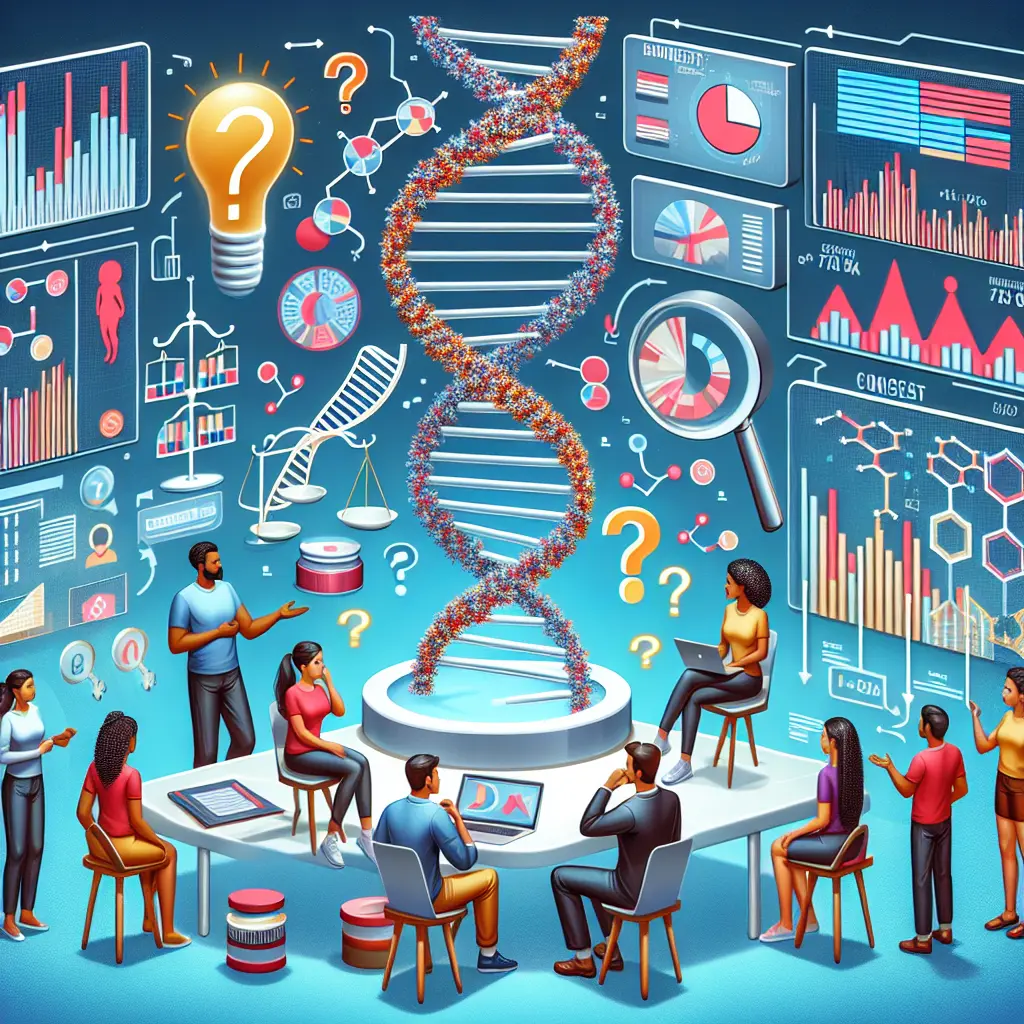
Exploring the Complexities of Genetic Testing Ethics in Ancestry Research
In the era of rapid technological advancements, genetic testing has opened new avenues for exploring our ancestry, offering insights that were once unimaginable. Yet, as we delve deeper into the strands of our DNA, the ethical implications of genetic testing in ancestry research have sparked significant debate and concern. These discussions are crucial, as they underscore the importance of understanding the balance between scientific discovery and ethical responsibility.
The landscape of genetic testing has evolved dramatically, offering unprecedented insights into our ancestry and heritage. However, these advancements bring with them a host of ethical implications that are crucial to address. The intersection of innovation and ethics in ancestry research requires a nuanced understanding of genetic testing ethics, especially as new cases and developments continue to emerge.
The Rise of Ancestry DNA Testing
Genetic testing kits, such as those offered by AncestryDNA and 23andMe, have become increasingly popular, particularly during sales events like Amazon Prime Day. These kits allow individuals to uncover details about their ancestry and traits at a fraction of the usual cost. For instance, during the 2023 Prime Day, the AncestryDNA and Traits Genetic Test Kit was available for just $39, a significant reduction from its usual $119 price. While these discounts make genetic testing more accessible, they also amplify concerns regarding privacy in genetic testing. When individuals opt for these tests, they often provide sensitive genetic information that could be misused or inadequately protected.
Privacy Concerns and Genetic Data Protection
One of the primary ethical issues in ancestry testing is ensuring robust genetic data protection. With the increasing availability of personal genetic data, genetic privacy concerns have intensified. How can consumers be sure their genetic information is secure? Are companies adequately safeguarding this data against unauthorized access? A recent development highlighting these concerns involves FedGMMAT, a federated learning technique designed to conduct large-scale genetic association tests without transferring sensitive data to a central location. This approach addresses privacy concerns by maintaining genetic data on local servers, reducing the risk of breaches.
Ethical Dilemmas in Genetic Research
The potential misuse of genetic data is not merely hypothetical. A Texas DNA lab recently utilized forensic genetic genealogy to solve the 1995 murder of Catherine Edwards, demonstrating the power—and potential pitfalls—of genetic testing. While this technology aids law enforcement in solving crimes, it raises ethical dilemmas regarding consent in ancestry research and the use of genetic information without explicit permission from individuals or their relatives.
Informed Consent in Ancestry Research
Ensuring informed consent is a cornerstone of ethical considerations in genetic testing. Individuals must be fully aware of the potential implications for themselves and their families before undergoing genetic testing. The case of Mary Harris underscores this necessity. After using a 23andMe test, Harris discovered not only her deep ancestry but also revelations about her immediate family. Such discoveries can have profound personal and familial impacts, emphasizing the importance of clear communication about risks and benefits.
Genetic Testing and Family History Ethics
Genetic testing not only affects individuals but also has far-reaching implications for family history ethics. Discoveries about one's ancestry can bring to light previously unknown family connections or secrets. For example, Mary Ellen Turpel-Lafond faced public scrutiny after a DNA test backed her ancestry claims amidst allegations of falsehoods regarding her heritage. These situations highlight the complex interplay between personal discovery and family dynamics.
Addressing Bias and Ensuring Equitable Access
Another critical aspect of genetic ancestry ethical concerns is addressing potential biases in genetic research and ensuring equitable access to these technologies. A study on enhancing portability of trans-ancestral polygenic risk scores aims to provide more accurate disease stratification models across diverse populations. By integrating tissue-specific functional genomic data, researchers hope to overcome limitations posed by ancestry-targeted GWAS (Genome-Wide Association Studies), thereby promoting inclusivity in genetic research.
Navigating Ethical Challenges in Ancestry Research
As we navigate these ethical waters, fostering a dialogue that includes all stakeholders is paramount. How do we balance scientific advancement with ethical responsibility? Engaging with experts, ethicists, and affected communities can help address these complex issues.
For instance, Othram's work in forensic genetic genealogy illustrates both the promise and the perils of using genetic testing to solve cold cases. While their efforts bring closure to families and communities affected by unsolved crimes, they also raise questions about consent and the ethical use of genetic data.
Furthermore, the debate over 23andMe's rejection of a take-private offer by its CEO highlights corporate governance issues related to the stewardship of vast amounts of personal genetic data. This scenario underscores the importance of maintaining transparency and accountability within companies that handle sensitive information.
Conclusion: Toward a Responsible Future in Genetic Testing
In conclusion, understanding the ethical implications of genetic testing in ancestry research requires a comprehensive approach that considers privacy, consent, bias, and accessibility. As we continue to explore our genetic pasts, we must remain vigilant about protecting individual rights while fostering scientific innovation.
By engaging with ongoing developments and staying informed about ethical challenges in ancestry research, we can contribute to a more responsible and inclusive future for genetic testing. Let us continue this important conversation, ensuring that our pursuit of knowledge respects both individual autonomy and collective responsibility.
Call to Action: As we advance in our understanding of genetics, let's keep the conversation going. Share your thoughts and experiences in the comments below. How do you perceive the role of ethics in ancestry research? Your voice is essential in shaping this important discourse.
Author: Avery Simmons